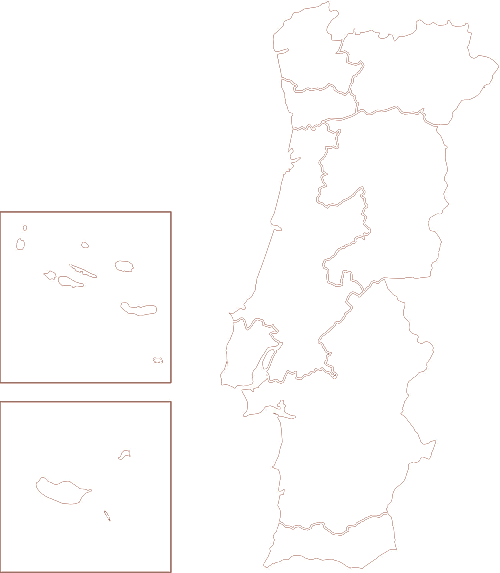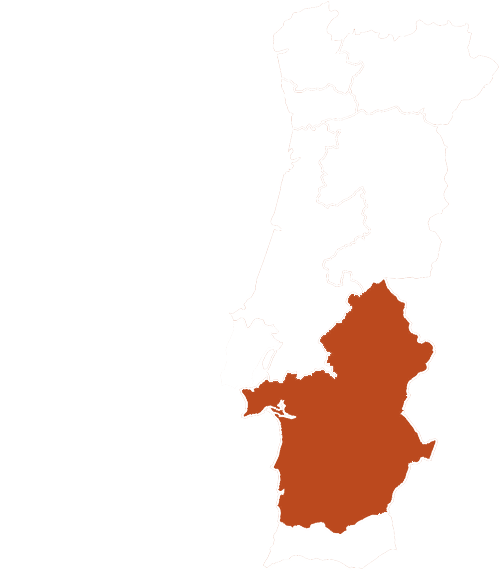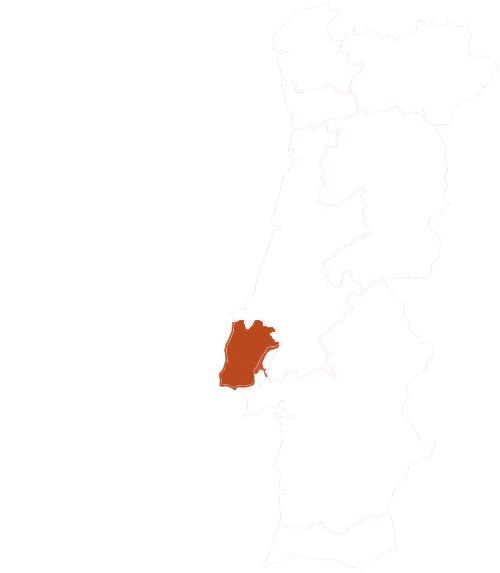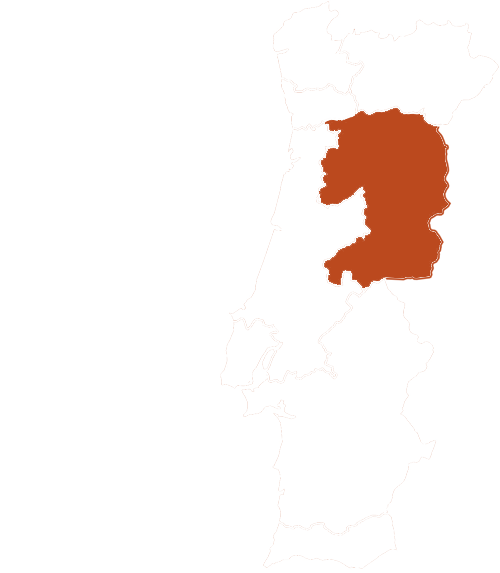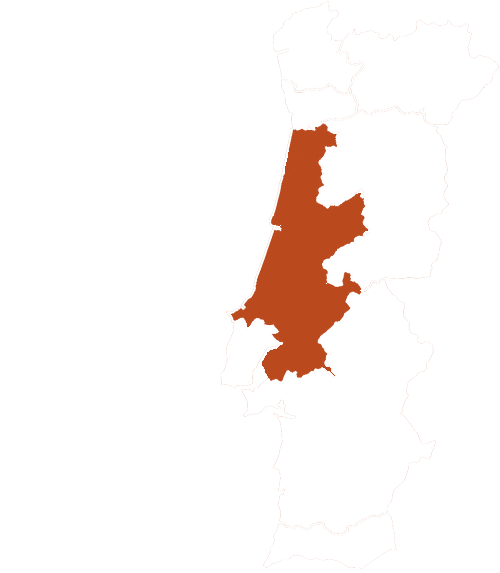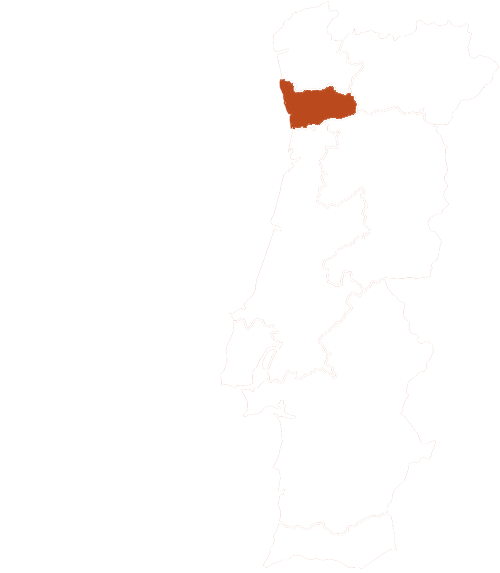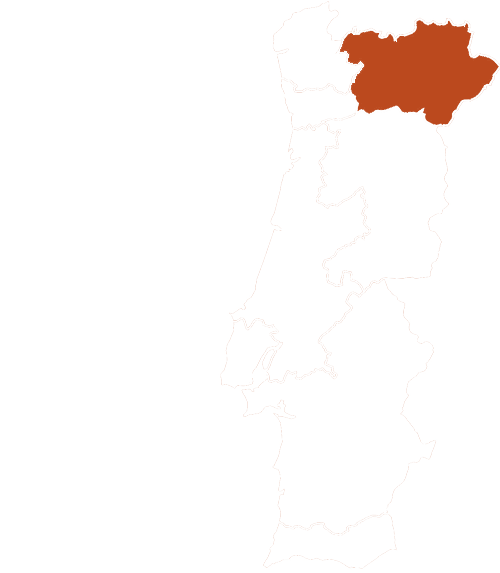Set out on a journey of discovery through towns, cities and villages, of a heritage rich in memories evoking the Jewish presence in Portugal. A complete itinerary featuring part of Portugal’s Sephardic Jewish heritage, comprising the historic and cultural heritage of a community that left deep and decisive marks on the development of the country, over the ages.
Full-day Visit of Lisbon and Synagogue
Begin with a thematic tour in Lisbon focused on Lisbon’s Jewish background. Lisbon is, without doubt, a charming city. Singular monuments scatter themselves through an urban landscape unlike any other, and beautiful viewpoints open up extraordinary views over the river Tagus. This is a city both Atlantic and Mediterranean, illuminated by an extraordinary light. Our tour will allow you to discover the different side of the city with a rich variety of heritage.
Jewish life probably began here not long before the city fell to the Moors in the 8th century. It remained a major port and market up to the time that Portugal's first king, Afonso Henriques, seized it in 1147. The Alfama quarter, hugging a slope between the river and the castle is one of the city's oldest areas, and a large Jewish community flourished here in the hereabouts of the Rua da Judiaria. As the community grew, and more Jewish refugees came to Lisbon, a new Judiaria Pequena (small jewry) formed in the 13th century near what is today the central Praça do Comércio (Trade Square). Unfortunately, this entire area was completely destroyed by the 1755 earthquake. The nearby Rossio square, was the site of the court of the Inquisition. It was here that countless ceremonies were held and where Jews and other accused heretics suffered the "purification rituals" - The Auto da Fé.
In Rossio’s main square there was also one of the biggest royal hospitals in Europe, the "Hospital de todos os santos", unfortunately destroyed by the massive earthquake of 1755. This hospital had most of its medical staff, pharmacists and nurses’, Jewish local residents of Lisbon.
Learn about the great "Progrom" of Lisbon from 1506 that also took place here in Rossio Square in the former church of Saint Dominic, once ruled by the Inquisition.
A walking tour in this area will allow you to visit all of these sites, and observe images (provided by your guide) illustrating the past.
In the afternoon, visit Lisbon's Synagogue "SHAARE TIKVA". If you are interested, we can arrange with the local community your participation on a prayer, or to attend the shabbat.
There have been Jews in Lisbon at least since the Middle Ages, but the community suffered a major blow in 1497, when an edict by King Manuel I ordered Jews either to convert to Christianity or to leave the country. All synagogues of Lisbon were confiscated by the King and given to Christian religious orders. For the Jews that converted to Catholicism, called New Christians (cristãos novos), the establishment of the Portuguese Inquisition in 1536 meant a permanent danger of being persecuted.
The situation for Judaism in Portugal changed at the beginning of the 19th century, when the Portuguese Inquisition was abolished and Sephardi Jews from Morocco and Gibraltar, mostly merchants, started to migrate to Lisbon and other parts of Portugal. Inaugurated in 1904, the Lisbon Synagogue was the first synagogue to be built in Portugal since the late 15th century. The architect Ventura Terra conceived a temple in a style mixing Neo-Byzantine and Neo-Romanesque, consistent with the Oriental fashion for Synagogue architecture. In 2004, a ceremony was held to celebrate the synagogue's 100th anniversary. Portuguese President Jorge Sampaio and Israel's Sephardi Chief Rabbi Shlomo Amar were among the speakers.
Accommodation in one of our suggested Luxury, Premium or Boutique Hotels.
Jewish Culture and Food Experience in Lisbon
The Jewish history of Lisbon and Portugal is ancient, layered, remarkable, and at times marked by unspeakable tragedy. Portuguese Jews are Sephardic in culture, language, and gastronomic tradition. Elements of Sephardic food and drink can be found in Spain, Morocco, Iraq, and Italy, but Portugal left its distinctive mark on the Sephardic legacy.
Our day starts with a brief walking tour focused on the gastronomy of Sephardic and Portuguese Jews and a historical overview of some of Lisbon’s most ancient Jewish quarters. Your Jewish guide, who is also a trained chef and former sommelier, will lead you through the tour, shopping for ingredients at a gourmet market, followed by a cooking class where together you will share recipes and produce a sumptuous Sephardic feast. And, because Portugal is a land of wine, with its own tradition of Kosher wine, your meal will include an assortment of Portuguese Kosher wines that will be enjoyed along with the meal, with expert description by your guide.
Accommodation in one of our suggested Luxury, Premium or Boutique Hotels.
Full-day Visit of Sintra and Coast of Estoril (Haven for WWII Refugees)
Start the day with the World Heritage Site of Sintra. A town of palaces, landscapes, culture, art and also of great romantics who passed through here. Learn about the ancient myths of Celtic bards, the Moorish legends, the passions of the Christian Reconquest and a masonry that makes this site so unique in the world and so magical!
From literature to music, the town of Sintra has inspired various figures and dazzled others with its mystical and charming environment. We visit the Historical Center of Sintra, with a visit to the traditional narrow streets full of flowers and local craft shops, and viewpoints.
After a nice lunch break in one of the many traditional restaurants and browsing through hundreds of years of history it will be time to relax by driving to the town of Cascais along the nature park of Sintra-Cascais.
Once a small fishing village only, the town of Cascais managed to maintain its seafaring traditions combined with the aristocratic and royal presence of the late 19th and beginning of the 20th century. Walking by its animated town center you'll find the cosmopolitan life side by side with the Atlantic.
The return to Lisbon will follow a very special road named "Marginal" by the Portuguese, running always parallel to the white sandy beaches and amazing 17th-century fortresses starting at the town of Estoril with its famous casino.
Accommodation in one of our suggested Luxury, Premium or Boutique Hotels.
Full-day Visit of Évora (The Headquarters of the Inquisition)
Leave the urban area of Lisbon towards the great rural region of Alentejo. Discover the city of Evora and its world heritage historic center. Until the end of the 15th century Évora was headquarters to one of the largest Jewish communities in Portugal. The Jewry was located inside the fortress walls. It had two synagogues, a “mikveh” (place for ritual baths), a hospital and a leper colony. Some Jewish signs are still visible in the door jambs of houses in Rua do Raimundo, Rua dos Mercadores and Rua da Moeda.
There was a synagogue, in the street Rua do Tinhoso. The Arc, the Table from the Court of the Inquisition, dating from the mid-16th century, and some Hebrew tombstones can be found in the Évora Museum. In front of the Museum, the coat of arms of the Inquisition can still be seen above the doors of the former Inquisition Court and Palace. The autos da fé took place in Praça do Giraldo. Of the first four books printed in Portugal, there is a copy of Abraham Zacuto’s Almanach Perpetuum (printed in Leiria in 1496) at the Évora Library, as well as a copy of the Évora Nautical Guide.
Visit the former Palace of the Inquisition, with its trial chamber, the Inquisitor’s Archive and Office and the most intriguing “Casas Pintadas” (Painted Houses) owing its name to the singular set of 16th century frescoes that decorate the gallery and the oratory annex integrated into the garden. The garden gallery decorations are one of the most interesting artistic manifestations of the genre existing in Portugal and a unique example of palatial mural painting from the first half of the 16th century.
Accommodation in one of our suggested Luxury, Premium or Boutique Hotels.
Experience the real Alentejo! Ribafreixo Kosher Olive Oil and Wines
Every place has something different. But the decision to make something out of it, coupled with the necessary know-how, can give the land something unique. Ribafreixo Winery is a unique place! Enjoy a guided tour through the winery, vineyards and finish with a fantastic meal at the Panoramic Restaurant, which welcomes diners in a refined ambience focused on wine-based themes with its delicious Alentejo style gastronomy, fine food created exclusively by chef Catarina Parreira, paired with the winery greatest Wines and Kosher Olive Oil.
Cruise in Alqueva Lake
In the afternoon, enjoy a relaxing cruise in the great lake of Alqueva.
The Great Lake resulting from the Alqueva Reservoir, provides the perfect place for spending a few days relaxing and in good company. Welcome to one of the largest artificial lakes in Europe, built on the River Guadiana. It has a reservoir of 250km2 and covers five Alentejo municipalities.
The lake has brought an amazing environment to this region. Where once there were fields of olive trees, cork oaks and holm oaks, today there is water and renewed life, with optimal conditions for outdoor activities and for water sports such as sailing, water-skiing and wakeboarding, or for invigorating trips by canoe or kayak. For lovers of hiking and biking, there are marked trails to be followed. These are a great way to discover the customs and traditions and to mix with the local population.
At the Great Lake, it's easy to let yourself be captivated by rural tourism while appreciating the simple pleasures of country life and contemplating the surrounding nature.
Stargazing Experience in Alqueva Lake
We know that the Alentejo is constantly challenging our senses! From the wine palates, to the aromas of the flowers such as the famous Alentejo pennyroyal, its wonderful landscapes, and great lakes! Nonetheless, we’d like to propose a unique experience, something that has always been with you since your childhood! All this can be done at the Alqueva Lake Observatory.
Accommodation in one of our suggested Luxury, Premium or Boutique Hotels
Full-day Visit of Castelo de Vide, Marvão and their amazing Castles
Today we’ll explore two of the most charming villages and castles of the upper Alentejo Region, which both played a major role as a safe haven for the sephadi jewish when expelled from Spain!
Start with Castelo de Vide, a small town with a castle on a hill. By the 14th century a large Jewish community existed here. The medieval layout of the streets combines with a Jewish influence on some of the street names, such as Rua da Judiaria (Street of Jews), Rua Nova (New Street), where Jews converting to Christianity lived and were known as new-Christians, Rua do Arçário (Street of Arcades), the source of the community’s wealth and the Rua das Espinosas, named in honor of the 17th century philosopher Spinoza, son of a Castelo de Vide resident.
Learn about the medieval Jewish Quarter and its influence to the local architecture.
At the crossroads between Rua da Judiaria and Rua da Fonte there is the former synagogue, which served as both a meeting place and school for the Jewish community. Heading down the north slope, the stroll inevitably ends in a square pleasantly set off by the Town’s fountain. This represented one of the boundaries to the Jewish quarter.
Continue to the hilltop castle of Marvão, located at the most extreme east border of Portugal, on the highest crest of the Serra de São Mamede. Geographically, Marvão is a point of natural strategic defense, marked by steep slopes to the north, south and west. Inside the walls are narrow streets lined with the beautiful popular houses that are typical of the Alentejo. Amidst them, it is easy to find Gothic arches, Manueline windows, wrought-iron balconies and other embellishments in the nooks and crannies of the buildings made from the local granite. This impressive fortress town served as an entry point to the thousands of Jews who fled Spain in the 15th and 14th centuries.
Accommodation in one of our suggested Luxury, Premium or Boutique Hotels.
Full-day Visit of Castelo Branco and Belmonte
Our itinerary will now continue to the northeast region of Portugal – Beira Interior – a land of mountains, castles, deep valleys and remote villages, therefore being one of the most sought out destination for the Jewish families seeking for shelter away from the eyes of the Inquisition!
Visit the city of Castelo Branco, where a mediaeval Jewry quarter was recently discovered. Adjacent to the castle, it occupied Rua d’Ega, Rua dos Oleiros, Rua do Sobreiro, among others, and it followed along the city wall to Jardim do Paço. The typical Jewish architecture and the inscriptions on the thresholds are still visible in these streets that carry the names of their inhabitants’ professions. Castelo Branco was the birthplace in 1511 of the Jew João Rodrigues, also known as Amato Lusitano, who later became one of the 16th century’s most notable doctors. He had to flee from the Inquisition and died in Thessaloniki in 1568.
Visit the Museum - Casa da Memória da Presença Judaica (House of memory of the Jewish presence) – which intends to tell the story of a community that greatly contributed to the development of the city in the sixteenth century, its memories and the legacy left here.
Continue heading north, until you reach Belmonte, which was the main center for the country’s community of marrano (New Christian) Jews. Belmonte retains much of the medieval atmosphere of times when the Jewish community would have to practice its prayers, traditions and customs in secrecy even if Belmonte is now more than proud to be home to its synagogue.
The plateau on which it is situated, at an altitude of 870 meters, gave it a strategic position in the defense of the frontier with Spain and made it an important fortress during the Middle Ages. After centuries of Jewish organization in secrecy, it was during 1920 that Samuel Schwarz announced the existence of a jewish community in the interior of Portugal, near the Serra da Estrela: Belmonte, the native town of the discoverer of Brazil in 1500, Pedro Alvares Cabral. After the persecutions of the Inquisition and the Catholic integration processes that have diluted all the existing communities, it came to public that this village had its Jewish traditions alive. Belmonte is in the 20th century the last peninsular (Portugal and Spain) community of Crypto-Jews. About 200 people, nearly 10% of the villagers.
By secretly preserving their religious worship, their faith and their customs, they survived from the Edict of Expulsion of the Jews in 1496 to the present day. Officially recognized in 1989, seven years later the Belmonte Jewish community inaugurated the “Beit Eliahu” Synagogue (House of Elijah) located at Rua Fonte da Rosa and appointed a rabbi. In 2001 the Jewish cemetery was built, and the Jewish Museum opened its doors in 2005. A tombstone found in Belmonte proves that a synagogue had already existed here in 1297.
If you are interested, we can arrange with the local community your participation on a prayer, or to attend the shabbat.
Accommodation in one of our suggested Luxury, Premium or Boutique Hotels.
Full-day Visit to the most remote villages of Trancoso and Castelo Rodrigo.
Trancoso still preserves the walls and doors of the mediaeval castle. Many Jews coming from Aragon and Castile established themselves here from the 14th century, and particularly during the 15th and 16th centuries. The Jewry was located in Corredoura, in Rua da Alegria, Rua dos Cavaleiros and Rua da Estrela, where it is possible to see about 300 cross signs on the façades and doors. At number 5 Praça D. Dinis, a parchment was found with the prayer of “Shema Yisrael”. Symbols on the façade of the Casa do Gato Preto (Black Cat’s House), in Rua Frei João de Lucena, are interpreted as the Lion of Judah and the Gates of Jerusalem. The Poço do Mestre (The Master’s Well) would most likely be the source that supported the “mikveh”, the sacred purification bath. Nearby is the Isaac Cardoso Jewish Interpretation Centre, named after a Jewish doctor born here in the 17th century. It is a modern space of knowledge about the Hebrew presence in both Trancoso and the surrounding region. It houses the Beit Mayim Hayim Synagogue which in turn represents a Sephardi Synagogue.
If you are interested, we can arrange with the local community your participation on a prayer, or to attend the shabbat.
From its lofty hilltop position, the small village of Castelo Rodrigo looks down over the plateau stretching eastwards to Spain and northwards to the deep valley of the River Douro.
The Jewish quarter was located within the walls of the old town in the areas currently corresponding to the streets of the synagogue and the Páteo do Concelho, as well as the Largo de S. João Baptista.
With the arrival of many refugees from Spain, after 1492, there is a strong population growth throughout the county. The ancient synagogue, located at the corner of the streets with the same name and that of the Páteo do Castelo, have been transformed into the cistern that stands today, but maintains the doors and base construction.
Another curiosity about this small village is related to it being part of the Holy Trail to Santiago de Compostela. Legend has it that none other than St. Francis of Assisi spent the night here on his pilgrimage to the tomb of St. James.
Now a quiet peaceful village, Castelo Rodrigo is worth visiting for its past glories, the beauty and freshness of its location, the houses contained within its walls, its Manueline pillory, as well as its stories.
Accommodation in one of our suggested Luxury, Premium or Boutique Hotels.
Visit the Wine Region of the Douro Valley
We will continue our way towards the great Douro Valley passing through some small hilltop villages with breathtaking landscapes and then going down towards the Douro River, where the vines grow on terraces along the banks of the river, lending great beauty to the landscape, with large estates and manor houses. Classified as a world heritage site, where man gave birth to port wine and table wines of great quality. Port wine is the oldest Ambassador of Portugal, belonging to one of the oldest demarcated regions in the world, since 1756 when the General Company of Agriculture and Vineyards of the Alto Douro, was created. Here were also born the Douro table wines, which in recent decades have acquired great notoriety and border projection thanks to their quality, both in the reds as well as the whites and rosés.
Lunch in a traditional winery of the Douro Valley and River Cruise.
The Winery Quinta de la Rosa has been in the Bergqvist family since 1906, although they have been in the port trade as shippers under the family name, Feueheerd, since 1815. Quinta de La Rosa is a stunning, family owned property of 55 hectares with an annual production of 85,000 liters of Port and 200,000 liters of Douro wine.
After visiting the winery, embark on a 2-hour river cruise along the Douro Valley on board a Rabelo Traditional boat.
Navigate upstream towards the mouth of the Tua River, one hour to navigate upstream and one hour to navigate downstream, in one of the most beautiful sections of the Douro Valley. You’ll see plenty of vineyards, terraces, villages and towns as well as 18th and 19th century estates that are part of the wine industry.
Accommodation in one of our suggested Luxury, Premium or Boutique Hotels.
Full-day Visit to Porto with Kosher Port Wine.
Porto is a charming town, situated on the slopes of the Douro River and very near to its mouth. It is classified as a UNESCO World Heritage Site thanks to its beautiful monuments and historic buildings such as the imposing Cathedral or the Tower of Clerics. Porto is the second largest city of Portugal and has superb views over the river. The city provides a harmonious synthesis of ancient and contemporary attractions. Perched on hill tops and clinging to cliffs, the Douro River has been guarded by its attractive buildings, bridges and street lamps for centuries. Fiercely proud of their heritage, the citizens of this merchant town have invested their blood and sweat, in their commerce and wine. Nightclubs and restaurants mingle with cathedrals, churches and museums in narrow alleys and broad avenues. There are many cafes around the city, where you can relax after climbing the many hills of Porto.
In this city with its mercantile history, it is not difficult to locate the Jewish community that aided the development of the city and the region since the Middle Ages. The New Jewish Quarter of Olival was around the church of Nossa Sra. da Vitória, between S. Bento Monastery and Rua de Belmonte. One of its gates was at the entrance of Rua de S. Bento da Vitória and the other at the end of the Escadas da Vitória, or “Escadas da Esnoga”. A Latin inscription in S. Bento Church proves that a Jewry once existed here.
Visit a Port Wine Lodge and taste its Kosher Port!
Taylor, Fladgate & Yeatman (often simply Taylor Fladgate) is one of the largest port wine houses. Founded in 1692 in Vila Nova de Gaia, Portugal by Job Bearsley, becoming Taylor, Fladgate & Yeatman when Joseph Taylor, John Alexander Fladgate and Morgan Yeatman formed a partnership in 1838.
The house owns the brands of Fonseca, Fonseca-Guimaraens, Taylor, Krohn and Croft. They ship almost all types of port including vintage, tawny, ruby, late-bottled vintage, and white. Taylor Fladgate's vintage ports are some of the most sought-after and expensive ports in the world. They also invented the style of late-bottled vintage port.
Accommodation in one of our suggested Luxury, Premium or Boutique Hotels.
Visit the Synagogue in Porto.
Finally, in 1938, the “Mekor Haim” Synagogue (Fountain of Life) or Kadoorie, was inaugurated at 340 Rua Guerra Junqueiro. The largest in the Iberian Peninsula and one of the largest in Europe. Built with donations from Jews around the world, it was inaugurated in 1938, at a time when in Germany Synagogues were being burned down.
This architectural monument is one of the most extraordinary Jewish houses of worship in the world and is also the headquarters of the Jewish Community of Porto, founded in 1923 by Captain Barros Basto, who became known in the Jewish world for trying to rescue the descendants of Jews forced to convert to Christianity, in the fifteenth century, and kept the secret practice of precepts of the Jewish religion.
If you are interested, we can arrange with the local community your participation on a prayer, or to attend the shabbat.
River cruise in Porto with dinner.
During the night you may choose to take an optional night river cruise in Porto with dinner on board. The river Douro will always be associated with the city of Porto and its bridges, wine lodges, orange rooftops and old granite houses. This is a 3-hour river cruise with dinner on board, discovering the beautiful city lights as well as the Wine lodges of Vila Nova de Gaia.
Accommodation in one of our suggested Luxury, Premium or Boutique Hotels.
Full-day Visit to Coimbra and Tomar.
Coimbra, capital of Beira Litoral Province, named Aeminium by the Romans in 400ad, was also the former capital of the Kingdom of Portugal. One of the most beautiful cities of Portugal, holding several historical monuments, medieval churches, and the most important library in Portugal, where treasures and rare single volumes from various fields of knowledge are stored. Coimbra, located on the River Mondego, is in the geographical center of Portugal, and boasts famous academic republics, medieval narrow streets, lovely courtyards, arches, cafes, galleries and bookstores.
There were three Jewries in Coimbra: Santiago, Santa Justa and Pedreira. The oldest, the Santiago Jewry or the Old Jewry, was located in Rua Corpo de Deus, where the Synagogue was situated. In the famous Joanina Library, there are many important studies by the great mathematicians Pedro Nunes (inventor of the nonius) and André de Avelar, both New Christians who taught at Coimbra University in the 16th and 17th centuries respectively. This library also has an ancient Hebrew Bible, a manuscript in parchment from the second half of the 15th century, known as the Abravanel Bible.
Visit Tomar (UNESCO), and its world heritage site - The Templar Castle and the Convent of the Knights of Christ in Tomar (12th century) a unique monument in the history of the western world. After a royal reformation of the Order of the Temple, the Inquisition main office in the 16th century, was settled here. This vast monumental complex illustrates seven centuries of Portugal's history and contains several important mementoes of decisive moments in the history of the western world.
The Abraham Zacuto Portuguese-Jewish Museum is located on the old Rua da Judiaria. Its collection includes an engraved stone that marks the establishment of the Great Synagogue of Lisbon in 1307. The Museum occupies the Synagogue that was ordered to be built between 1430 and 1460 by Henry the Navigator. It is the only remaining 15th century synagogue in Portugal. After the Edict of Expulsion of the Jews in 1496, the building served other functions until 1923 when Samuel Schwarz, a Polish Jew, restored it and donated it to the Portuguese State in order to establish the Museum. Later archaeological excavations discovered the “mikveh”, the sacred purification bath.
Accommodation in one of our suggested Luxury, Premium or Boutique Hotels.
Full-day Visit to Batalha, Nazaré and Óbidos
Your first stop is in Óbidos, one of the most beautiful and unspoiled villages of Portugal. It is strongly linked to the nobility since the thirteenth century, when King Dinis married Isabel of Aragon. Among many gifts, the monarch gave to his wife the village of Óbidos.
Walk through typical streets of the romantic medieval town, climb the wall that surrounds the village and enjoy the view over the houses. The old buildings are home to everything a traveler needs for a pleasurable visit: there are good restaurants, a collection of craft shops and art galleries full of charm, plus many cellars - among local specialties and wines, you will find ginjinha, a kind of liquor made from a type of wild cherry, tiny and very tasty, abundant in the region. You cannot leave without trying something exceptionally typical: the cherry liquor in chocolate cup which you can and should eat after drinking the liquor!
Continue your adventure heading to Nazaré where you can have lunch in “o sítio” a very well-known area of the village. Here you will find a traditional restaurant of Nazaré with fresh fish all year around – enjoy their best dish: sardines! Nazaré is a typical fishing village that managed to preserve its' characteristics and customs. The history of Nazaré was always linked to the legends that protagonized the miraculous of Our Lady of Nazaré. After a beautiful stroll in Nazaré head to Batalha.
The Monastery of Batalha, or Santa Maria de Vitória´s, is a masterpiece of Portuguese Gothic, a magnificent piece of architecture that combines various influences from its lengthy period of construction, which lasted several reigns. It was constructed in 1386 to keep a vow by Portuguese King Dom João I to the Virgin Mary that he would build it if Portugal defeated Castile at the Battle of Aljubarrota on 14th August 1385. Extravagant celebrations commemorating this victory are held next to the monastery in August of every year. Outstanding in the interior are the Founders' Chapel with its fine stained-glass windows, the cloisters, the Unfinished Chapels with their Manueline and Flemish Gothic features and the Chapter House.
Private Baroque Music Concert with professional Countertenor singers.
At night, enjoy a farewell dinner with a unique performance with the two best Portuguese Countertenor singers from the Baroque Period!
Accommodation in one of our suggested Luxury, Premium or Boutique Hotels.
Full-day Visit to Mafra Royal Palace (Inquisition Archive).
Visit Mafra, this town near Lisbon, in the "saloia" (rustic) area, which used to supply the capital with garden produce, is famous for its imposing Palace-Convent, the largest edifice in Portugal, built by order of King Dom João V in the 18th century. The king, who still had no children three years after his marriage to Dona Maria Ana of Austria, promised the Franciscan friars that he would build them a convent in the Mafra area if his prayers for an heir to the throne were answered.
The Palace also houses one of Europe’s most important libraries, and the largest collection of “forbidden” books, scripts and paintings which were confiscated by the Inquisition up until 1821. Attesting its importance, a Papal bull of Pope Benedictus XV, from 1745, allows this Library to shelter the Index of prohibited books and forbids under excommunication “to anyone of any state or condition, in any time or in any way, to take, remove or lend from the Library without the permission of the Portuguese King, any printed books or manuscripts in here stored”.
Some rare works furnish its shelves to this day, some of them describing in much details the male and female genitals, or medicinal recipes which were authorized by the Inquisition. Also, other books such as incunabula (books printed until 1500) like the Nuremberg Chronicle (1493).
Under appointment it will be possible to see one of these mentioned books and testify history and science in first hand! A unique experience to see a “forbidden book”!
Visit the Winery Quinta da Ribeira and enjoy Kosher Wine.
In the afternoon, visit the Winery Quinta da Ribeira. This farm began to be productive in the mid-nineteenth century at the initiative of Mr. Félix Rocha, the great-grandfather of the current owners. Around 1925, vineyard was planted in an area of about 220 hectares distributed among several farms in the area of Alenquer. From 1927, Quinta da Ribeira produces about 1,750,000 liters of wine, from traditional Portuguese grape varieties. One of its most famous products is the Kosher Regional Lisboa Red Wine presenting Ruby color with bright cherry reflections.
Accommodation in one of our suggested Luxury, Premium or Boutique Hotels.
Hotel check-out and private transfer to the airport.




